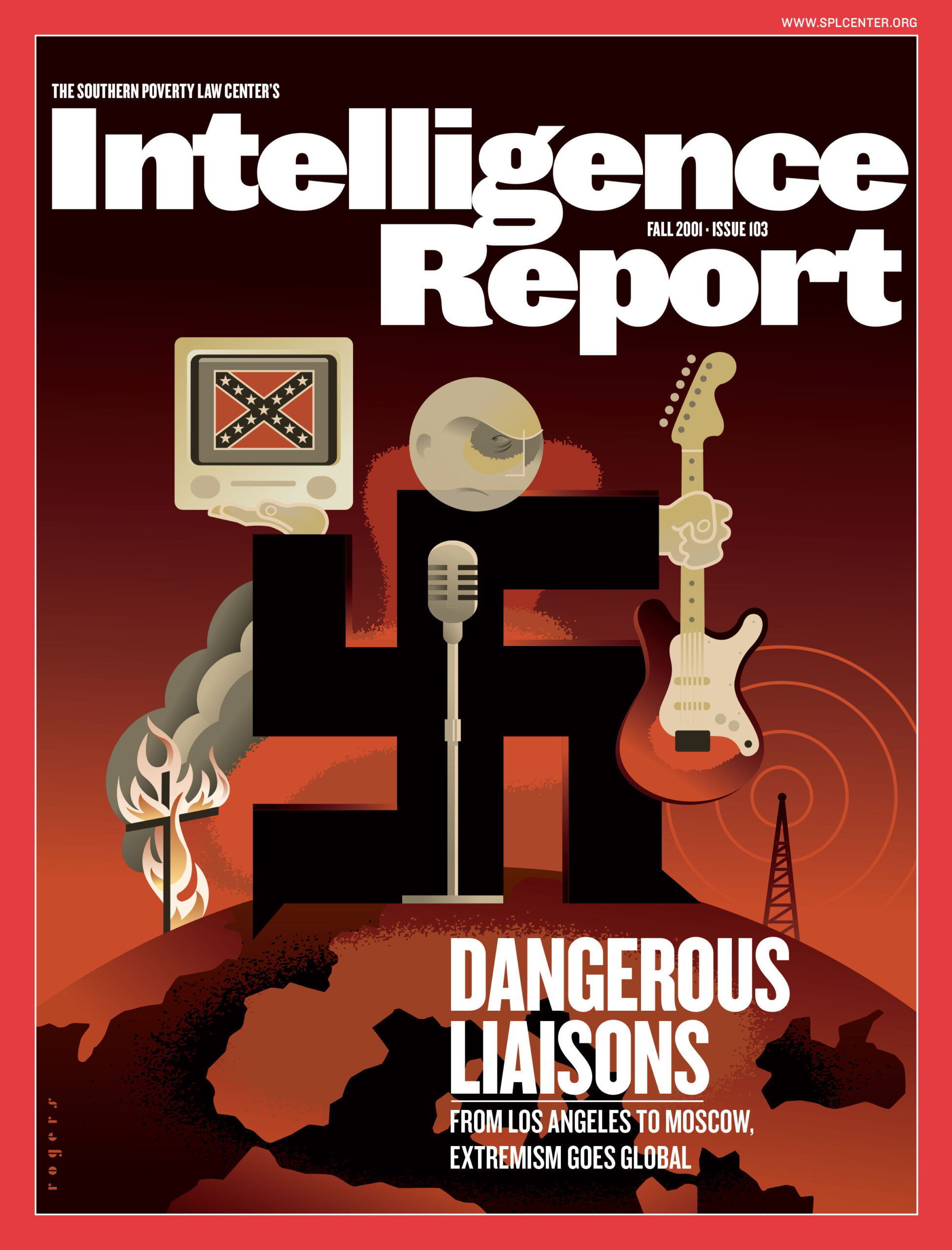The principle of ‘double criminality’ prevents the extradition of Americans who break European hate speech laws.
For years, the United States knowingly harbored a wanted man. Foreign prosecutors considered him to be a particularly dangerous figure and issued an international warrant for his arrest.
But the United States refused to lift a finger against the man, allowing him to live a peaceful life in rural America for more than 20 years while he continually flouted the laws of numerous European countries.
Gary Lauck, the American known as the “Farm Belt Führer,” was wanted in Germany for sending a steady stream of hate literature, tapes and paraphernalia into that country from his Nebraska home.
But because Lauck’s activities were perfectly legal in this country — courtesy of the First Amendment — German authorities could not nab him until he was foolish enough to travel outside the United States, leaving the protective cocoon of the First Amendment behind.
Living in the American heartland, Lauck was shielded by the principle of “double criminality” — the notion that fugitives will be extradited only when their acts are criminal in both the extraditing country and the country seeking to prosecute them.
Because the American legal system differs so markedly from that of most European nations when it comes to regulating speech, the United States is a virtual safe haven for the hatemongers of the world.
‘Personal Dignity’ and the Law
The Supreme Court’s decision in R.A.V. v. City of St. Paul, 505 U.S. 377 (1992), shows how broad the First Amendment’s protections can be.
Robert Victora had burned a cross in the yard of an African-American family and was prosecuted under a municipal ordinance forbidding speech or symbols that would likely “arouse anger, alarm, or resentment in others on the basis of race, color, creed, religion or gender.”
The Supreme Court overturned Victora’s conviction, holding that although “burning a cross in someone’s front yard is reprehensible,” the city of St. Paul could not single out for punishment speech motivated by racial or religious hatred.
“The First Amendment,” the Court emphasized, “does not permit St. Paul to impose special prohibitions on those speakers who express views on disfavored subjects.” Of course, cross-burnings may still be punishable under neutral criminal statutes such as those forbidding terroristic threats.
Although the type of hate-speech statute that the court examined in the R.A.V. case is impermissible in the United States, it is commonplace in Europe.
Article (51) of Germany’s Basic Code states that a citizen’s right to free speech cannot be used to conflict with another’s right to “personal dignity.” As a result, the German criminal code condemns the making of racial insults (Art. 130), the writing or disseminating of works that incite racial hatred (Art. 131), and the trivializing or denial of Nazi atrocities such as the Holocaust (Art. 194). As a practical matter, no such activity could be made criminal in this country.
The United States is a signatory to the United Nations’ Covenant of Civil and Political Rights, which states that “any advocacy of national, racial, or religious hatred that constitutes incitement to discrimination, hostility, or violence shall be prohibited by law.” But international agreements cannot be used to skirt the principle of “double criminality.”
Courts will treat such agreements like other laws and will not enforce them if they conflict with the Constitution. As a result, the United States signs treaties like the Covenant with the explicit reservation that they apply only to the extent that they do not conflict with the First Amendment.
Because almost every “advocacy of national, racial or religious hatred” is protected under the U.S. Constitution, our signature on the treaty is virtually meaningless.
New Technology, New Problems
The modern age of the Internet has multiplied the opportunities for conflict between the American and European legal systems. Those on German soil can now access Web pages and postings from New York just as easily as postings from Berlin.
When Lauck was arrested in Denmark and extradited to Germany after traveling abroad, the ironic thing was that the Internet was on the verge of making his Nebraska-based, neo-Nazi paper publishing empire obsolete. Today, any would-be Gary Lauck from any corner of America is free to post racist material for foreign consumption on the World Wide Web.
It is true that European countries have prosecuted American Internet service providers under hate-speech laws. France, for example, forced Yahoo! to stop posting auctions of Nazi memorabilia on its French portal (although it was still available to French users via the U.S. Yahoo! portal), and CompuServe was sued in Germany over its hate sites.
But these lawsuits were possible only because Yahoo! and CompuServe were doing business on foreign soil. People like neo-Nazi William Pierce, who makes his incendiary race war novel, The Turner Diaries, available on the Net in multiple languages from West Virginia but has no physical presence in Europe, are not threatened.
The “double criminality” principle does not frustrate only foreign countries. The same principle can stymie law enforcement here as well. European countries like France that have abolished the death penalty are now refusing to extradite suspected murderers to the United States without a guarantee that prosecutors will not seek their execution.
As globalization accelerates and continues to bring the world closer together, the dilemmas posed by the principle of “double criminality” will only increase.



